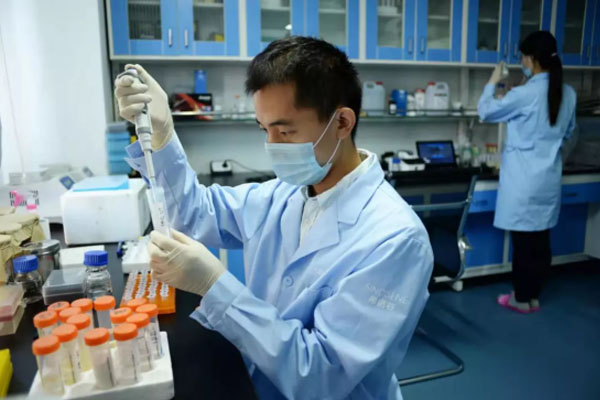
Researches found that many netizens have the stereotype that "animals being cloned generally have a shorter life span".
Is the life span of cloned animals shorter than normal?
A short answer is, the life span of cloned animals is normal.
Let us explain to you why the life span of genetically cloned animals is normal.
A common misunderstanding about the technology is: Animal cloning technology is the perfect replication of genes. It can also perfectly replicate telomeres that have shortened a certain length. For example, to clone a 10-year-old kitten, the telomere length of its somatic cell has been shortened by 10 years. To clone a kitten with this somatic cell, the telomere length has also been shortened by 10 years, which is equivalent to the age of 10 at birth, so the life span is only a few years, and it is bound to be premature.
But is this "reasonable" statement true?
As for the description of "telomere", there is no mistake. In fact, its mistake lies in the incomplete understanding of "cloning technology", which is a simple process of "copy-paste". It ignores the complex physiological processes involved in cloning technology.
Here, we would like to introduce a professional term "reprogramming".
Reprogramming refers to the process in which differentiated cells revert to totipotency without changing gene sequence. This process exists in the development of fertilized eggs to embryos, and in the development of cloned reconstructed embryos.
Most importantly, reprogramming restores the telomeres of embryonic cells to their original level!

Imagine a couple that has a child when they are 27 years old, their sperm and oocyte are both "27 years old". Why is the child born "0 years old"? It is because of the reprogramming process when the fertilized egg develops to the embryo that the telomeres are restored to the original level and back to the "0-year-old"!
During a pet cloning process, the somatic cells of the cloned body are injected into the enucleated oocytes. In the process of forming the reconstructed embryo, the cells are also reprogrammed. In this way, the telomeres of the cells are restored to the original level. Newly cloned animals are also at the "0-year-old" state!
Therefore, from the perspective of scientific theory, we have proven that the life span of cloned animals is normal.
Misunderstanding 2
At this time, it must be asked again: Dolly, the first animal that was cloned, only lived less than 7 years old, suffered from serious arthritis, pneumonia and other diseases, and had to be euthanized. Isn't it proof that genetically cloned animals have premature aging and abnormal life span?
However, when Dolly was 2 years old, the Japanese cloned twins "Noto" and "Gaho" were born. In May 2018, the 19-year-old "Noto" died, and "Gaho" has survived to this day. The natural life span of the cattle was about 20 years, so the life span of the cloned twins was normal.

Kumlina, a cloned mouse born in 2000, survived for two years and seven months, with a normal life span of about two years.
In June 2000, Yang Yang, a cloned sheep developed by Professor Zhang Yong of Northwest Agricultural and Forestry University of science and technology, was born and died in 2016 at the age of 16, even longer than most of the sheep.
Therefore, it is proven that the life span of genetically cloned animals is normal from the perspective of scientific theory and practical examples.
Up to today, cloning technology has developed for more than 20 years. Sinogene, asan industry-leading pet cloning company, has sufficient experience in cloning experiments and skilled operators. Sinogene Biotechnology ensures that the cloned animals from Sinogene are healthy and will have a normal life span.
